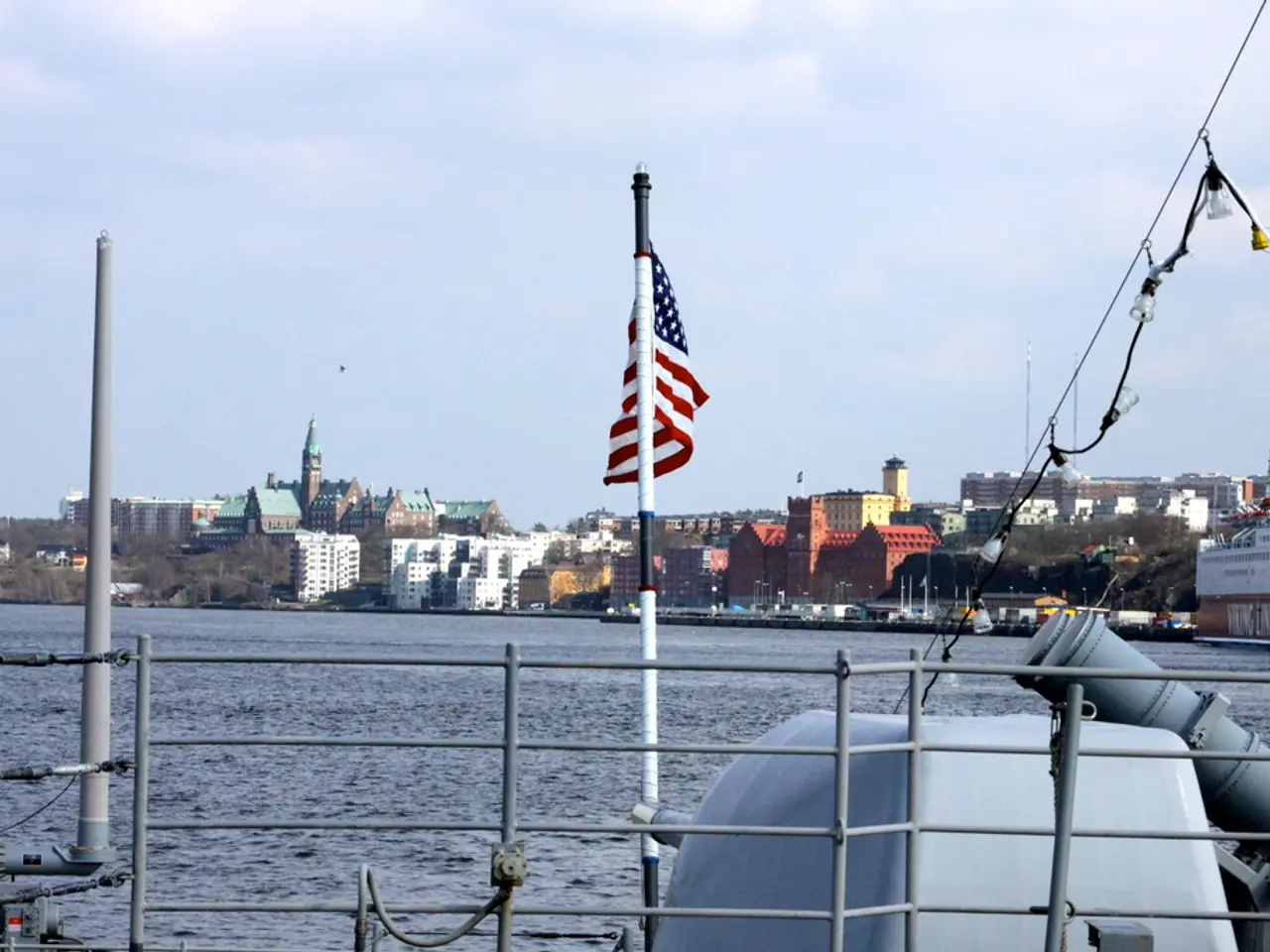Disruption persists: NOK halts operations following warning strike
The ongoing strike by the ver.di union in the lock chambers of the North Sea-Baltic Canal (NOK) in Brunsbüttel and Kiel has led to a standstill in this heavily trafficked waterway, preventing any ships from using it. This situation could potentially lead to delays in the delivery of goods through the canal, with far-reaching implications for shipping, the environment, and costs for shipping companies.
The strike is intended to pressure the federal government due to losses in canal tolls caused by the standstill. The union's continued action underscores the need for a resolution to the revenue loss issue, potentially involving negotiations with the federal government.
In terms of shipping, the strike could cause significant congestion and delays, similar to the reported congestion at major European ports like Antwerp-Bruges. Ships might need to take longer alternative routes, increasing transit time significantly. This can propagate delays in cargo flow, affecting industries dependent on just-in-time delivery, with knock-on effects on manufacturing and retail sectors.
The strike also has environmental implications. Rerouting to longer sea voyages typically raises fuel consumption and emissions of greenhouse gases (GHGs) and pollutants, aggravating environmental costs. Increased traffic on routes like the Suez Canal could elevate environmental risk due to higher ship volumes and associated accidents or spills. Port and canal congestion can also increase the duration ships spend idling with engines on, worsening local air quality.
Cost implications for shipping companies are also a concern. Longer detours and increased waiting times elevate fuel consumption and labor costs. Bottlenecks often cause shipping costs to rise, as carriers pass delays and fuel surcharges to customers. Operations near tense geopolitical areas or during strikes can cause insurance premiums and security expenses to spike.
However, shipping companies can partially counteract these effects by rerouting and port diversification, although at higher costs and increased environmental footprint. Ships may choose other canals or routes, such as the Suez Canal or Cape of Good Hope, although often at the expense of time and cost. Shipping companies might also spread cargo to less congested ports to avoid bottlenecks, reducing strain on any single port. Improved scheduling and inventory planning can partially absorb delays and optimize cargo handling. Engaging stakeholders to resolve strikes quickly minimizes disruption duration.
In summary, a strike at the NOK Canal would likely cause significant shipping delays, increase operational costs, and worsen environmental impacts through extended voyages and port congestion. The ongoing strike threatens the attractiveness of the canal and could potentially impact the overall efficiency and reliability of the North Sea-Baltic Canal. While shipping companies can partially counteract these effects, it is clear that a swift resolution to the strike is in the best interests of all parties involved.
This analysis draws on the related European port congestion and regional maritime security context from the search results, as the direct strike specifics are not present in the provided information.
- The union's strike at the NOK Canal could have a ripple effect on various industries, including public-transit, as longer shipping delays might disrupt the delivery of necessary parts used in transportation systems.
- In the realm of finance, the strike could potentially lead to an increased cost burden on shipping companies, pumping more funds into alternative routes and routing strategies, thereby affecting the overall financial health of these companies.




